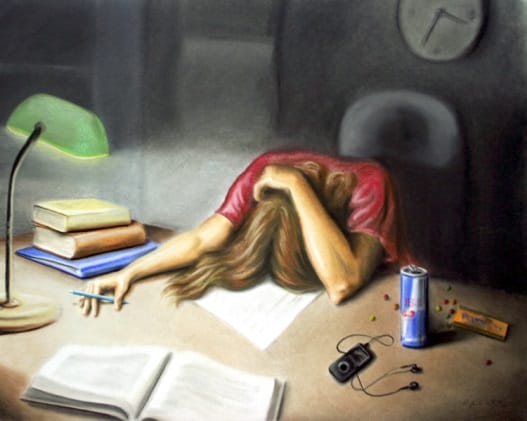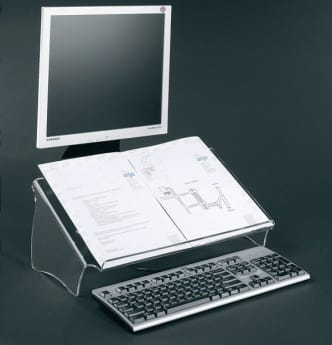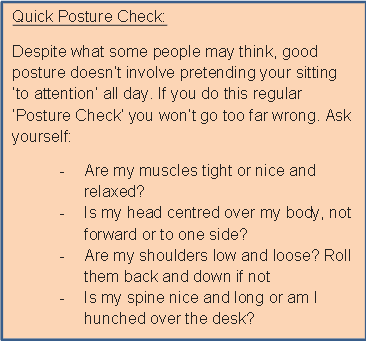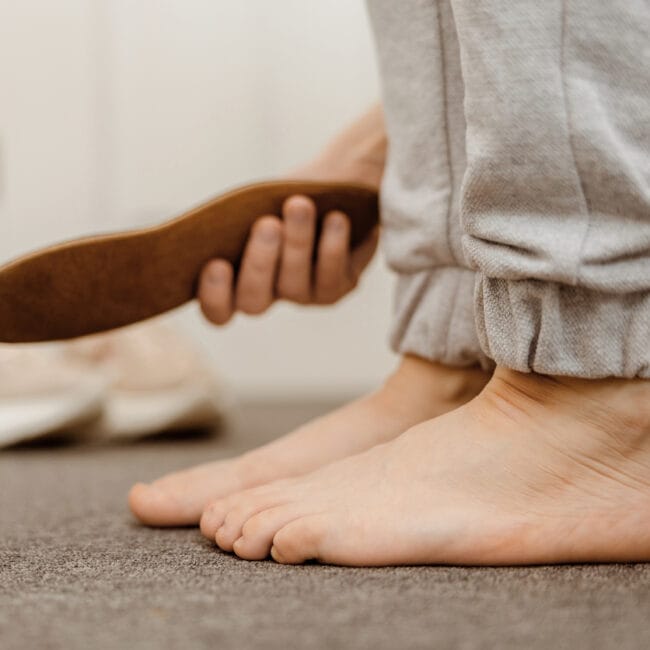The annual ‘Exam Season’ has officially kicked off with almost 60,000 Leaving Cert students tackling the Oral Examinations in the last few weeks. In this blog our Chartered Physiotherapist in Newbridge, Co. Kildare, Ronan Buckley, gives us his tips on how to avoid exams becoming more of a pain than they need to!
Whether you are studying for the Leaving, college exams or getting stuck into your Thesis, the coming weeks will probably involve spending long nights hunched over books and computers, surrounded in sheets of A4 paper and cups of tea.
The tips below are designed to insure you’re not physically as well as mentally drained by the time summer holidays come around.
Organise your environment

Sitting on your bed or floor surrounded in papers encourages poor posture. Sitting hunched over encourages rounded shoulders and a forward head posture which can lead to muscles getting tight or weak. Neck or low back pains are bound to follow. So set yourself up with a good chair and desk and organise your space so that you have sufficient room to work.
Chair
Get yourself a chair that is comfortable but not too comfortable!! Recent studies have shown that slight amounts of muscular tension increase efficiency and accuracy in mental work. A chair which promotes good posture is a better choice than a recliner or waterbed!!
A good posture when sitting would involves:
Feet flat on the ground.Hips level or slightly above knees.Back supported by back rest – if it isn’t roll up a towel to fill the gapForearms should be supported by either the arm rests or the desk, but your shoulders should not be forced up towards your ears.
Desk

The height of your desk should be such that your elbow is just below the desk top when writing. If using a computer, the middle row of the keyboard should be in line with your elbow, meaning your forearms are parallel to the floor. If writing, try and use a writing slope. This keeps your head upright and encourages spinal balance. If taking notes keep the book within your field of vision.
Breaks
Make sure to take regular breaks (at least every hour). Get up, walk around, do a few stretches, get the blood circulating. At the end of the day humans are built to move. No matter how much attention we pay to sitting posture, sustained static positions cause muscular imbalances, pain and stiffness. So when your mum is giving you grief that you’re on yet another break – tell her you’re following physio advice!
Listen to your body
Before you develop problematic posture related pains, there will of course be some alarm bells– so listen to them!! That ache in your back isn’t going to go away unless you change something. Make adjustments to your environment, take more breaks or come and see your local physiotherapist because preventing injuries is a lot easier then healing them.
OK thanks for reading, but it’s time to stop surfing the net and go back to the books now…..or maybe you should check facebook again, just for five more minutes…..!?!
Below is a posture-check that you should try to adhere to. Good luck in your exams, the finish line is in sight!!
















